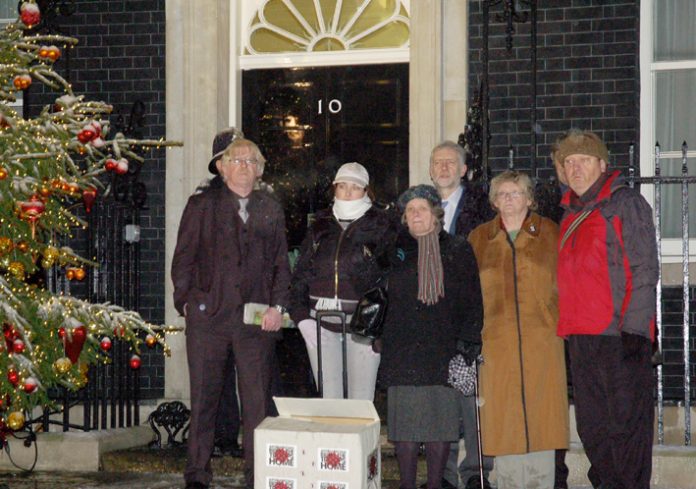TONY BLAIR is to give evidence to the Chilcot Inquiry into the Iraq War in the second half of this month, or early February, while his former communications chief Alastair Campbell will appear on January 12, it emerged yesterday.
Public entry to hear Blair give evidence will be by lottery. Reg Keys whose son was killed in Iraq commented that all military families had a right to be present to hear Blair give evidence about why their sons died in Iraq.
The inquiry resumed yesterday after the Christmas break, with questions about Blair’s role taking centre stage.
Blair phoned the British ambassador to Iraq almost daily in the aftermath of the 2003 invasion to give him instructions, the inquiry heard.
Sir William Patey – ambassador from 2005 to 2006 – said that he received orders directly from the prime minister almost on a daily basis.
Patey said it was ‘the first time I have ever had instructions as an ambassador directly from the prime minister’.
Patey said Blair told him: ‘Help get a constitution that the Iraqis would vote positively for, the formation of a new government, create the conditions for the withdrawal of British troops.’
He continued: ‘They were quite reasonable instructions, provided you realised that they weren’t in my gift or solely in the gift of the British government.
‘There was a tension between the desire for instant results and the realities on the ground.
‘What you could achieve in the sort of timescales that London needed for political reasons; there was a disconnect.’
Patey told the inquiry that he had been under particular pressure to engage with Shia cleric Moqtada al-Sadr.
‘There was rarely a day went by when I did not have a phone call from No 10,’ he said.
‘I was encouraged by No 10 to reach out to the Sadrists to give them the message that we felt they had a place in the political system.’
However, he continued: ‘Moqtada refused to see me throughout my time there, and every Sadrist I did see seemed to lose their job very soon afterwards.
‘They were very reluctant to engage with us but we tried to engage with them.’
Ridiculing Blair’s Downing Street calls, Patey, who is now UK ambassador to Saudi Arabia, concluded sarcastically: ‘I think the level of ambition was probably higher than the ability to deliver.
‘What could be delivered on PowerPoint could not necessarily be delivered on Earth.
‘There were formidable obstacles in terms of getting the power grid up, power stations built, oil pipelines repaired and I can’t say we had a huge amount of success.’
